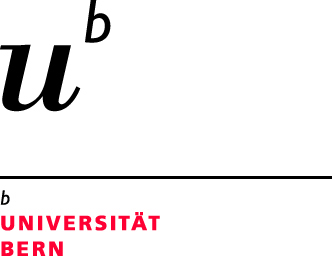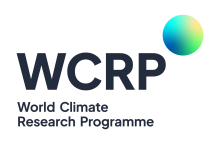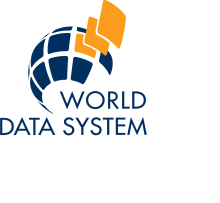
- Home
- About PAGES
- Supporters and Partners
Thumbnail

|
Financial support for PAGES comes from the Swiss Academy of Sciences (SCNAT) and the Chinese Academy of Sciences (CAS). |
 |
PAGES is supported in-kind by the University of Bern, Switzerland. For administrative purposes, it is part of the university's Oeschger Centre for Climate Change Research (OCCR). |
|
|
Future EarthAt the end of 2015, PAGES became a Global Research Project of Future Earth. Read the PAGES-Future Earth Memorandum of Understanding here. Future Earth is a global research platform designed to provide the knowledge needed to support transformations towards sustainability. Future Earth seeks to build and connect knowledge to increase the impact of research in diverse contexts, to explore new development paths, and to find new ways to accelerate transitions to sustainable development. The vision of Future Earth is for people to thrive in a sustainable and equitable world. This requires contributions from a new type of science that links disciplines, knowledge systems and societal partners to support a more agile global innovation system. Future Earth harnesses the experience and reach of thousands of scientists and innovators from across the globe. This global community is spread over a series of networks and governing and advisory bodies. > Access all Future Earth Annual Reports, which include sections about PAGES, here. PAGES was a core project of the International Geosphere-Biosphere Programme (IGBP) from 1991 until its closure in 2015. |
|
Thumbnail

|
World Climate Research ProgrammeThe World Climate Research Programme (WCRP) is an international research programme co-sponsored by the World Meteorological Organization (WMO), the Intergovernmental Oceanographic Commission (IOC) of the United Nations Educational, Scientific and Cultural Organization (UNESCO), and the International Council for Science (ICSU). WCRP's mission is to facilitate analysis and prediction of Earth system variability and change, for use in an increasing range of practical applications of direct relevance, benefit, and value to society. WCRP's two overarching objectives are to determine the predictability of climate and the effect of human activities on climate. Recognizing the convergence in their interests and activities and the existence of substantial mutual collaboration, PAGES and WCRP have formed a scientific partnership aimed at strengthening ties between the two organizations at several levels. A small scoping committee from the WCRP and PAGES communities will explore opportunities for collaboration through activities of mutual interest that focus on the enhancement of climate and paleoclimate research. These activities might include workshops, ad hoc or on‐going shared working groups or panels, jointly sponsored and produced reports or assessments, convergent and interoperable data sets and databases, integrated models, joint sessions at international conferences, collaborative proposals, public outreach and education, or other activities or products of mutual interest. |
|
|
WDS-PaleoPAGES is pleased to have a scientific agreement with NOAA National Centers for Environmental Information - Center for Weather and Climate, World Data Service for Paleoclimatology (WDS-Paleo). The interrelated nature of PAGES and WDS-Paleo dates back to our beginnings in 1993, and in May 2019 a formal agreement was signed. PAGES’ commitment to data stewardship has continued to grow and is now a central objective, especially since the creation of the Data Stewardship Integrative Activity. PAGES has developed a deep understanding of the challenges and opportunities in research that involves data discovery, synthesis, and analysis. Building on this experience, PAGES continues to facilitate the development of data-intensive synthesis products, and promotes data stewardship within its constituency. Several databases have been developed and used widely, and many others are under construction. WDS-Paleo archives and distributes data contributed by scientists around the world. lt provides the paleoclimatology data and information that scientists need to understand natural climate variability and potential future climate change. lt is part of the National Oceanic and Atmospheric Administration (NOAA), a bureau of the U.S. Department of Commerce. Within NOAA, it is part of the National Environmental Satellite, Data, and lnformation Service (NESDIS) - National Centers for Environmental lnformation (NCEI), and fosters NOAA's goals to understand climate variability, extremes, and change and to build societal resilience in relation to these aspects of climate. PAGES and WDS-Paleo recognize convergence in their interests and activities, and the existence of substantial mutual collaboration, and welcome this agreement. The original partnership agreement can be consulted here |
|
Thumbnail

|
World Data SystemThe mission of the World Data System is to enhance the capabilities, impact, and sustainability of member data repositories and data services by:
Strategy and Action Plan The WDS objectives express a commitment to WDS’s overall direction and priorities for the next two years. Suggested actions associated with each objective indicate what should be done, by whom, how they will be supported by the WDS, and the intended impact. |
|
|
Inter-American Institute for Global Change ResearchPAGES and the Inter-American Institute for Global Change Research (IAI) have established a fellowship program for research and capacity building activities in Latin America and the Caribbean. The project is called "International mobility research Fellowship Program for Latin American and Caribbean early-career scientists on past global changes”. Goals of the project include developing and promoting collaborative research among Latin American and Caribbean researchers, developing international collaborations, such as bilateral research projects between their host and other institutions, and contributions to the promotion and development of local paleoscience communities and scientific networks devoted to paleoscience. This program will run for two to three years and supports up to a maximum of six students per year. The fellowship will be awarded for a short duration, typically one to three months, and will need to be fulfilled within one year of being awarded. The choice of the host lab is at the discretion of the applicant. The first fellows should be able to carry out the mobility program starting in early 2022 (health and safety issues permitting). A selection panel comprising members of PAGES and the IAI will make the final decision on awardees based on the review of applications received. The first call for applications will be announced soon. |